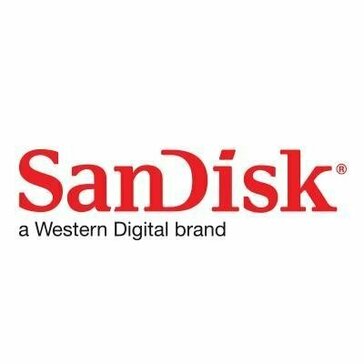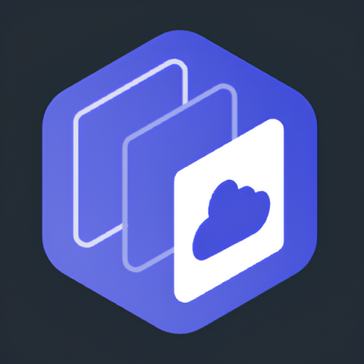Best Hybrid Cloud Storage Solutions
Best Hybrid Cloud Storage Solutions At A Glance
G2 takes pride in showing unbiased reviews on user satisfaction in our ratings and reports. We do not allow paid placements in any of our ratings, rankings, or reports. Learn about our scoring methodologies.
- Overview
- User Satisfaction
- Seller Details
Adapt your existing technology to a hybrid cloud designed with flexibility and scale in mind.
- Information Technology and Services
- Computer Software
- 40% Small-Business
- 32% Enterprise
32,750,646 Twitter followers
- Overview
- Pros and Cons
- User Satisfaction
- Seller Details
Cloud Storage is a managed service for storing unstructured data, like videos and documents. It is most commonly used for data lakes for analytics, storing AI data, or web hosting. With Cloud Storage
- Software Engineer
- Information Technology and Services
- Computer Software
- 36% Small-Business
- 25% Enterprise
32,750,646 Twitter followers
- Overview
- User Satisfaction
- Seller Details
Azure Storage Explorer Preview is a standalone app that allows you to easily work with Azure Storage data - from any platform, anywhere. It creates and manages blobs, tables, queues, generate SAS keys
- Information Technology and Services
- Computer Software
- 26% Enterprise
- 15% Mid-Market
14,002,464 Twitter followers
- Overview
- Pros and Cons
- User Satisfaction
- Seller Details
Nasuni is a unified file data platform for enterprises facing an explosion of unstructured data, combining storage and data services into a single hybrid cloud solution. Nasuni’s approach enables b
- Construction
- 67% Enterprise
- 31% Mid-Market
2,864 Twitter followers
- Overview
- User Satisfaction
- Seller Details
Atlas Core is OpenDrives’ award-winning software-defined platform, whether on-premises, cloud, or hybrid, and is the driving force behind the Open ecosystem. Born out of M&E, OpenDrives has a deep
- 45% Small-Business
- 27% Enterprise
608 Twitter followers
- Overview
- User Satisfaction
- Seller Details
An extension of Azure to consistently build and run hybrid applications across cloud boundaries.
- Information Technology and Services
- 27% Enterprise
- 22% Mid-Market
14,002,464 Twitter followers
- Overview
- User Satisfaction
- Seller Details
Multicloud connected data management to protect and control your cloud data.
- Information Technology and Services
- 53% Mid-Market
- 24% Small-Business
119,705 Twitter followers
- Overview
- User Satisfaction
- Seller Details
Pure's Evergreen Storage Service (ES2) delivers OPEX storage-as-a-service (STaaS) for private and hybrid clouds.
- Information Technology and Services
- 61% Mid-Market
- 22% Small-Business
66,483 Twitter followers
- Overview
- User Satisfaction
- Seller Details
AWS Storage Gateway is a service that connect an on-premises software appliance with cloud-based storage to provide seamless and secure integration between an organizations on-premises IT environment
- Information Technology and Services
- 20% Mid-Market
- 18% Enterprise
2,229,471 Twitter followers
- Overview
- User Satisfaction
- Seller Details
Red Hat OpenShift Container Storage is software-defined storage specifically built for container environments. It is based on Red Hat Gluster Storage and highly integrated with Red Hat OpenShift Conta
- Information Technology and Services
- Financial Services
- 42% Enterprise
- 33% Mid-Market
295,491 Twitter followers
- Overview
- User Satisfaction
- Seller Details
provide a range of independent Cloud options
- Information Technology and Services
- 50% Enterprise
- 28% Mid-Market
814,549 Twitter followers
- Overview
- User Satisfaction
- Seller Details
HPE Cloud Volumes will get you there faster. HPE Cloud Volumes provides an enterprise-grade multicloud storage service for running your applications in Amazon Web Services and Microsoft Azure. Cloud s
- 43% Enterprise
- 21% Small-Business
84,092 Twitter followers
- Overview
- User Satisfaction
- Seller Details
- 54% Enterprise
- 30% Mid-Market
822,135 Twitter followers
- Overview
- User Satisfaction
- Seller Details
Azure StorSimple meets the needs of performance and capacity-centric applications, and gives you a complete hybrid cloud storage solution for enterprises
- Computer Software
- Information Technology and Services
- 33% Mid-Market
- 26% Small-Business
14,002,464 Twitter followers
- Overview
- User Satisfaction
- Seller Details
Hybrid storage optimization solution for HPC environments
- Information Technology and Services
- 53% Enterprise
- 35% Small-Business
14,002,464 Twitter followers
- Overview
- User Satisfaction
- Seller Details
- 83% Enterprise
- 8% Small-Business
709,764 Twitter followers
- Overview
- User Satisfaction
- Seller Details
Sometimes the best environment for a workload is one that combines both public cloud, private cloud and single-tenant dedicated environments. That's why we've created a true hybrid cloud, with multi-
- 50% Small-Business
- 40% Mid-Market
100,290 Twitter followers
- Overview
- User Satisfaction
- Seller Details
Portworx provide a storage solution that spins up quickly and scales elastically based on application requirements it enable organizations to manage their applications at container speed, in seconds,
- 44% Mid-Market
- 38% Enterprise
66,483 Twitter followers
- Overview
- User Satisfaction
- Seller Details
Manage your NetApp storage operations directly from VMware vCenter.
- 62% Mid-Market
- 31% Enterprise
119,705 Twitter followers
- Overview
- User Satisfaction
- Seller Details
A simple NAS gateway for end users and applications which provides a secure, POSIX compliant, local NFS interface for cloud storage.
- 40% Mid-Market
- 27% Small-Business
822,135 Twitter followers
- Overview
- Pros and Cons
- User Satisfaction
- Seller Details
A CUTTING-EDGE CLOUD PLATFORM. DESIGNED TO FUTURE-PROOF YOUR BUSINESS. Available on-prem or in the cloud, Zadara Edge Cloud Services support both traditional enterprise and modern apps and provide a c
- Information Technology and Services
- 65% Small-Business
- 35% Mid-Market
2,492 Twitter followers
- Overview
- User Satisfaction
- Seller Details
Kdan Cloud not only enhances your experience in Creativity 365 and Document 365 suites, it also serves as a stand-alone cloud solution. Manage and organize your personal or shared files, and access th
- 100% Small-Business
- Overview
- User Satisfaction
- Seller Details
Hybrid Cloud Storage Array (HCSA) is an enterprise-level storage array that integrates with the Alibaba Cloud storage gateway. You can use and manage cloud storage resources (blocks, files, and object
- 70% Small-Business
- 30% Enterprise
- Overview
- User Satisfaction
- Seller Details
The fastest and most efficient block-storage software. Installed on a cluster of standard servers. Manages their local drives (HDD or SSD), so that it forms a virtual storage array. I.e. shared storag
- 60% Small-Business
- 30% Mid-Market
620 Twitter followers
- Overview
- Pros and Cons
- User Satisfaction
- Seller Details
Oracle Big Data Cloud at Customer delivers the complete value of Oracle Big Data Cloud Service to customers who require their Big Data platform to be located on-premises.
- 29% Enterprise
- 19% Mid-Market
822,135 Twitter followers
- Overview
- User Satisfaction
- Seller Details
The leading enterprise-grade cloud storage management solution, NetApp Cloud Volumes ONTAP delivers secure, proven storage management services and supports up to a capacity of 368TB. Software service
- Information Technology and Services
- Computer & Network Security
- 41% Enterprise
- 32% Small-Business
119,705 Twitter followers
- Overview
- User Satisfaction
- Seller Details
Qumulo is the breakthrough leader in simplifying unstructured data management at massive scale across hybrid-cloud environments. Qumulo provides a high-performance file data platform designed to store
- 58% Mid-Market
- 37% Enterprise
2,799 Twitter followers
- Overview
- User Satisfaction
- Seller Details
HPE StoreOnce provides simple, affordable and flexible backup protection with rapid recovery and application-integration.
- 43% Enterprise
- 43% Mid-Market
84,092 Twitter followers
- Overview
- Pros and Cons
- User Satisfaction
- Seller Details
VAST Data is simplifying the data center and redefining how organizations interact with data with its Universal Storage concept.
- 33% Enterprise
- 33% Mid-Market
5,460 Twitter followers
- Overview
- User Satisfaction
- Seller Details
Data federation across multiple private and public clouds
- 75% Mid-Market
- 25% Small-Business
- Overview
- User Satisfaction
- Seller Details
The Cloud Service Provider landscape Hyperscale, Consumer Cloud, B2B, Telco, and Private Cloud continues to evolve towards innovating services for elastic infrastructure, SaaS & business-critical
- 50% Small-Business
- 25% Enterprise
- Overview
- User Satisfaction
- Seller Details
Cloudian is revolutionizing software defined object storage storage for enterprises with its exabyte-scalable data platform, designed to meet the demands of today’s data-intensive AI and analytics wor
- 45% Mid-Market
- 27% Enterprise
3,523 Twitter followers
- Overview
- User Satisfaction
- Seller Details
HybridMount can mount storage from various sources, including cloud storage and remote servers as a file storage gateway. Multiple mounting possibilities help you access cloud storage via standard pro
- 100% Small-Business
- 33% Enterprise
24,917 Twitter followers
- Overview
- User Satisfaction
- Seller Details
InfiniBox, high performance enterprise storage, eliminates performance, availability and scalability issues to accelerate critical business applications.
- 100% Mid-Market
2,318 Twitter followers
- Overview
- User Satisfaction
- Seller Details
MayaData is a storage virtualization solution optimizing the deployment and consumption of storage.
- 67% Mid-Market
- 67% Small-Business
5 Twitter followers
- Overview
- User Satisfaction
- Seller Details
Discover software-defined storage built on the industry's leading data management software.
- 50% Enterprise
- 50% Mid-Market
119,705 Twitter followers
- Overview
- Pros and Cons
- User Satisfaction
- Seller Details
Amazon FSx for NetApp ONTAP provides fully managed shared storage in the AWS Cloud with the popular data access and management capabilities of ONTAP. Category should be Cloud File Storage
- 50% Enterprise
- 33% Small-Business
119,705 Twitter followers
- Overview
- User Satisfaction
- Seller Details
CTERA is the global leader in secure edge-to-cloud file services, enabling enterprises to manage and protect their data across distributed environments. With a focus on security, scalability, and seam
- 100% Mid-Market
1,670 Twitter followers
- Overview
- Pros and Cons
- User Satisfaction
- Seller Details
IBM Spectrum Virtualize provides an ideal way to manage and protect the volumes of data organizations use for big-data analytics and new cognitive workloads.
- 57% Small-Business
- 29% Mid-Market
709,764 Twitter followers
- Overview
- User Satisfaction
- Seller Details
In2net provides dedicated server hosting, colocation and managed network services to small to medium-sized organizations.
- 50% Enterprise
- 50% Mid-Market
- Overview
- User Satisfaction
- Seller Details
Panzura's hybrid cloud file services platform CloudFS replaces legacy storage with a modern, hybrid-cloud approach to unstructured data. It consolidates file servers into a single data source in the c
- 50% Small-Business
- 50% Enterprise
1,621 Twitter followers
- Overview
- Pros and Cons
- User Satisfaction
- Seller Details
A global product which provides collaboration, file sharing, syncing and everything in between for your business. Any device, anywhere.
- 67% Mid-Market
- 33% Enterprise
3,570 Twitter followers
- Overview
- User Satisfaction
- Seller Details
IntelliFlash is a storage management software designed to enable users to dial up or down the amount of flash to maximize performance and economics.
- 50% Enterprise
- 50% Small-Business
187,900 Twitter followers
- Overview
- User Satisfaction
- Seller Details
- 100% Enterprise
119,705 Twitter followers
- Overview
- User Satisfaction
- Seller Details
HybriStor delivers deduplication across sites, replication to multiple sites and WAN optimization between sites. This groundbreaking secondary storage globally dedupes data by rates up to 30:1 - movin
- 100% Mid-Market
1,026 Twitter followers
- Overview
- User Satisfaction
- Seller Details
- 100% Small-Business
709,764 Twitter followers
- Overview
- User Satisfaction
- Seller Details
iland Hybrid Cloud provides a range of workloads, including very large VMs, physical systems and colocation in any of Iland global data centers.
- 100% Mid-Market
3,195 Twitter followers
- Overview
- User Satisfaction
- Seller Details
NovaVue is our cloud delivered electrical, energy, and utility monitoring, analysis, reporting and alarming solution. We work with North America's largest energy critical facilities such as hospi
- 50% Mid-Market
- 50% Small-Business
- Overview
- Pros and Cons
- User Satisfaction
- Seller Details
The PHEMI Trustworthy Health DataLab is a unique, cloud-based, integrated big data management system that allows healthcare organizations to enhance innovation and generate value from healthcare data
- 67% Small-Business
- 33% Enterprise
759 Twitter followers
- Overview
- Pros and Cons
- User Satisfaction
- Seller Details
Purity delivers comprehensive, Tier 1 data services to all workloads – even as it provides global flash management to your arrays. Moreover, Purity enables consistent low latency, data protection, and
- 67% Small-Business
- 33% Mid-Market
66,483 Twitter followers
- Overview
- Pros and Cons
- User Satisfaction
- Seller Details
From our humble beginnings through today, Quobyte has been empowering customers by providing real software storage so that they can keep up with the ever-increasing amounts of data in today’s data-dri
- 60% Mid-Market
- 40% Small-Business
409 Twitter followers
- Overview
- User Satisfaction
- Seller Details
StoneFly SCVM facilitates data storage consolidation. The enterprise-grade Software Defined Storage (SDS) offers a number of automated data services that facilitate enterprise IT environments to digit
- 100% Mid-Market
1,748 Twitter followers
- Overview
- User Satisfaction
- Seller Details
StrongLink dynamically manages and moves files across any storage.
- 100% Mid-Market
715 Twitter followers
- Overview
- User Satisfaction
- Seller Details
VIOLIN Systems is a 100% channel-driven company that is transforming the storage industry by building high-performance, all-flash storage arrays to serve the complex computing needs of the world’s mos
- 100% Mid-Market
- Overview
- User Satisfaction
- Seller Details
- Overview
- User Satisfaction
- Seller Details
DDN Infinia is a next-generation AI data intelligence platform that accelerates and unifies data pipelines across core, cloud, and edge environments. Purpose-built for modern AI workloads, Infinia del
- 100% Enterprise
- Overview
- User Satisfaction
- Seller Details
Presenting Kops.dev - a powerful tool to automate multi cloud infrastructure. Whether you're deploying across AWS, Google Cloud, or Azure, Kops.dev streamlines the entire process, from provisioning
- Overview
- User Satisfaction
- Seller Details
Internedservices provides premium IT & cloud solutions on a subscription-based model without prior investment.
- 100% Enterprise
43,457 Twitter followers
- Overview
- User Satisfaction
- Seller Details
Replace your SAN and NAS with highly-automated, performant, software-defined storage that scales with your applications whether on-prem or in the cloud
91,866 Twitter followers
- Overview
- User Satisfaction
- Seller Details
"The Pegasus Verification System is a cloud-ready physical verification solution designed to accelerate advanced-node integrated circuit (IC) design. It features a massively parallel architecture, gig
19,260 Twitter followers
- Overview
- Pros and Cons
- User Satisfaction
- Seller Details
Scality, world leader in object and cloud storage, allows you to store and access billions of objects or even PB-sized objects across standard x86 hardware to meet the most demanding digital business,
- 57% Small-Business
- 29% Mid-Market
7,055 Twitter followers
- Overview
- User Satisfaction
- Seller Details
Simplyblock delivers enterprise-grade storage orchestration for Kubernetes environments through its innovative NVMe-first architecture. By leveraging NVMe over TCP, simplyblock provides ultra-low late
- Overview
- User Satisfaction
- Seller Details
Easy, Secure Decentralized Cloud Storage for Everyone Experience the fast & secure decentralized cloud storage in user-friendly interface. No technical expertise required, just like using other po
- Overview
- Pros and Cons
- User Satisfaction
- Seller Details
Upload once & get back to work. Suite solves the biggest headaches faced by dispersed & hybrid teams, enabling key players to store, share, edit, and manage files in real-time from anywhere. F
- 50% Enterprise
- 50% Mid-Market
- Overview
- Pros and Cons
- User Satisfaction
- Seller Details
Disruptions come in many forms. At TierPoint, we understand businesses must be ready to handle those disruptions and ensure business continuity. TierPoint offers solutions that minimize data loss and
- 60% Small-Business
- 20% Enterprise
2,742 Twitter followers
- Overview
- User Satisfaction
- Seller Details
UnityOneCloud provides integrated infrastructure management, including data center infrastructure management (DCIM), enabling clients to observe, monitor, and manage their hardware and virtual assets
1,062 Twitter followers
- Overview
- User Satisfaction
- Seller Details
Demanding enterprises worldwide depend on storage that can deliver results. The storage operating system for the next generation is here now with Concerto OS. Valuable enterprise data needs protection
- Overview
- User Satisfaction
- Seller Details
Scale storage capacity without adding hosts with VMware Cloud Flex Storage, the flexible, simple and cost-effective way to store and manage your data.
60,101 Twitter followers
Learn More About Hybrid Cloud Storage Solutions
What are Hybrid Cloud Storage Solutions?
Hybrid cloud storage solutions connect data storage operations between on-premises storage (private storage) and public cloud (shared storage). By integrating workload between these two environments, companies can store their sensitive data in their IT infrastructure to meet compliance and security requirements. Other less sensitive data can be transferred to public cloud data centers. Infrastructure-as-a-Service (IaaS) providers will store these data at a low price and scale based on need. This hybrid approach is very flexible as it allows users to scale their operations based on cloud computing and storage demand.
Common connection methods for hybrid cloud storage include virtual private network (VPN), wide area network (WAN), and hybrid cloud application programming interface (API). The most widely used option is VPN. This type of network offers a private and secure connection like a private internal network. Another type of network is the WAN which sends traffic over multiple connection types. WAN is the most flexible connection method because it accepts traffic from personal computers and the Internet of Things (IoT). The last type of network option is a dedicated network from cloud providers. Vendors can create their API to incorporate a dedicated bandwidth and low latency connection. Organizations can use all three connection methods or just one, depending on their needs.
One challenge companies face is designing a compatible hybrid cloud architecture that runs smoothly. A complex hybrid cloud environment needs to connect hundreds of different pieces of hardware to multiple public clouds across the globe. Companies need to plan out for compatibility to make sure that all hardware and software integrate with ease. Hybrid cloud solutions provide visibility into complex environments so that companies know how to allocate their resources. A correct hybrid setup should automatically manage this process so that the workload operations on both environments are seamless and efficient.
What are the Common Features of Hybrid Cloud Storage Solutions?
The following are some core features within hybrid cloud storage software that can help users in setting up their hybrid cloud operation:
System integration: Hybrid cloud storage solutions synchronize on-premises and public cloud infrastructure. The goal is that data should flow seamlessly across multiple environments. However, there are always technical differences between onsite hardware and third-party cloud. Hybrid cloud solutions bridge these differences by synchronizing different big data. These solutions integrate data from multiple sources so that users can manage workload operations in multiple cloud environments.
Encrypted connection: Network connections are the most important part of a hybrid cloud design. Company infrastructure and data centers connect either through a private network or public internet. Hybrid cloud solutions usually offer VPN and API connections. A cloud VPN allows employees to securely access company applications and data in the cloud through providers’ websites or applications. Unlike traditional VPNs, a cloud VPN doesn’t require infrastructure. It’s globally accessible and easy to deploy. API connection is a dedicated network from cloud providers. They incorporate a dedicated bandwidth and low latency connection. However, API connectivity varies by vendor, so users should demo all vendors’ API connections before purchasing.
Central management: Hybrid cloud can be complicated to manage because it integrates numerous private clouds and public clouds. These cloud solutions all have different API and service-level agreement (SLA) requirements. Therefore, a central cloud management tool is critical in a multi-cloud environment. These tools oversee all cloud operations in a single dashboard so users do not have to manage each cloud separately.
What are the Benefits of Hybrid Cloud Storage Solutions?
Data compliance: Hybrid cloud storage solutions allow users to keep sensitive data on-site without sacrificing scalability. Rather than relying on all aspects of third-party cloud infrastructure, companies can separate their data between what they want others to see and what they need to keep to themselves. Since hybrid cloud connections and on-site data remain private, this also fits many compliance requirements.
High scalability: Hybrid cloud storage is a cost-effective solution because it is similar to public cloud storage services. These cloud storage solutions are highly scalable because they can rapidly allocate cloud resources up and down based on computing demand. This helps companies to use public cloud computing for high-performance workloads and keep clients happy by providing a hassle-free online experience.
Flexible cost: Companies only pay for the extra resources when they need to compute more data. They will also save on cloud infrastructure investment and optimize costs by working with a cloud provider.
No vendor lock-in: Without a full commitment to public cloud, companies can migrate their public cloud data to their private server when needed. This reduces the dependency on a single public cloud provider. Multiple public cloud options are also available once hybrid cloud architecture is set up. With the correct hybrid configuration, companies should be prepared to quickly switch from one cloud provider to another when a better rate or service is available.
Business continuity: Many businesses are utilizing hybrid cloud storage as disaster recovery. Cloud backup software will replicate data in case of an unexpected disaster. For organizations that require data protection, they will benefit from a mix of on-premises and public cloud solutions to meet their SLAs in case one solution goes down.
Who Uses Hybrid Cloud Storage Solutions?
IT teams: Most companies would have their IT teams set up the hybrid cloud design. Depending on the size of the company, the design complexity can range from a couple of IT developers to dozens of IT professionals.
What are the Alternatives to Hybrid Cloud Storage Solutions?
Alternatives to hybrid cloud storage software can replace this type of software, either partially or completely:
Infrastructure as a service (IaaS): IaaS describes the various ways in which third-party vendors provide cloud-driven, cloud-hosted infrastructure to businesses. IaaS vendors provide public cloud storage, which is the base layer of hybrid cloud storage. Users would need to set up their public cloud before connecting to hybrid. If the users don’t need to work with private cloud storage, then they can use public cloud storage without a hybrid cloud setup.
Virtual private cloud (VPC): VPC is a public cloud environment that a host isolates as part of its resources for a specific user. Since a VPC is part of a public cloud, it shares the same cloud infrastructure as the public cloud, but only the user can access it. Therefore, VPC is a safer storage environment than the public cloud. Users can consider VPC storage if they don’t have on-premises storage requirements.
Software Related to Hybrid Cloud Storage Solutions
Related solutions that can be used together with hybrid cloud storage tools include:
IoT edge platforms: IoT edge platforms help facilitate localized computer processing on IoT devices. These devices constantly analyze streams of data, including information about networks, actions, and anything else the device is connected to or interacting with. Hybrid cloud architecture establishes IoT Edge connection by linking local hardware and cloud servers.
Challenges with Hybrid Cloud Storage Solutions
Integration: Hybrid cloud storage can be difficult to set up if companies are using different vendors for hybrid cloud storage and public cloud storage. Many top IaaS cloud providers offer hybrid cloud solutions that are native to their cloud environment. However, bundled cloud storage services will result in vendor lock-in. Therefore, many customers don't use hybrid solutions from their IaaS providers. However, they need to hire additional staff who understand different vendor technologies to integrate both hybrid cloud and public cloud systems.
Load balancing: Load balancing is a network management method that distributes global and local network traffic among different servers. When one cloud is receiving much more load than another cloud, it drives up costs and reduces performance. By redistributing the loads to the underutilized cloud, this situation can be avoided. In hybrid cloud and multi-cloud environments, users need to efficiently distribute resources across different cloud infrastructures. Companies might need to buy a platform-agnostic, multi-cloud load balancing software that can distribute traffic regardless of the underlying infrastructure and the cloud services being used.
Compliance: Part of the reason why a company may go for a hybrid cloud instead of a public cloud is because of data compliance issues. Sensitive data are kept on-premises and data that requires heavy computing resources are stored in the public cloud. IT teams need to learn how to keep sensitive data secured and separated from public cloud data. Companies shouldn’t assume that their cloud developer already knows this process. They need to be trained on how to keep compliance to avoid a future data leak.
How to Buy Hybrid Cloud Storage Solutions
Requirements Gathering (RFI/RFP) for Hybrid Cloud Storage Solutions
Hybrid cloud storage solutions can differ significantly depending on use case and vendor selection. Whether a company is looking for its first hybrid cloud storage software tool or looking to replace an existing one, g2.com can help buyers find the best tool.
The effectiveness of hybrid cloud solutions depends on how well the business integrates them into its environment. Infrastructure and use case requirements are critical to a successful hybrid approach. Infrastructure requirements should cover application integration, network connectivity, security, accessibility, scalability, hardware consumption, and so on. Companies need to build a hybrid cloud solution based on their infrastructure, not the other way around. If they don’t consider these requirements, they would have to buy additional software to integrate with the hybrid cloud architecture, which would waste time and money.
Use case requirements should cover specific goals of the hybrid cloud setup: business continuity, edge connectivity, data compliance, and others. No cloud solution can do it all so businesses should prioritize which business goal is the most important first. A clear and focused business use case makes the development process faster and easier. Once the initial implementation is successful, then businesses can think about growing their hybrid cloud capability into other areas.
Compare Hybrid Cloud Storage Solutions
Create a long list
There are hundreds of IaaS providers that offer hybrid cloud tools. Companies should start with software that fits their infrastructure requirements. For companies that already have public cloud storage, they can first also start by looking into their cloud provider’s hybrid cloud offering for comparison. Based on these requirements, companies should select 5-10 vendors for initial use case assessment.
Create a short list
For those solutions that meet the infrastructure criteria, buyers can try to apply vendor pricing to their use case. How much would a fully functioning hybrid setup cost based on the estimated workload? This should give buyers a budget of how much the solution will cost and filter out the ones out of the price range.
Conduct demos
System integration is the most important consideration. Businesses need to demo the solution in their environment. It doesn’t matter how well the hybrid cloud solution performs in the vendor's controlled environment since hybrid architecture is highly customizable. This is also a chance to see how easy it is to manage the whole system. Users should be able to manage multiple hybrid cloud infrastructures by using a centralized dashboard. The last thing any IT team wants to do is to fix a complex bug through different cloud management tools. After the business ensures that the hybrid solution will run smoothly in their system, they can select the best solution based on price and quality of service.
Selection of Hybrid Cloud Storage Solutions
Choose a selection team
The IT team, purchasing team, and other teams who will be using the hybrid cloud tools should be included in the selection process. The IT team provides technical expertise. The purchasing team needs to ensure that the vendor contract aligns with other software vendor contracts. For example, there is no reason to buy a hybrid cloud software specifically for an application that will expire in a month. Users of the hybrid cloud tools can participate in product demo for questions and feedback.
Negotiation
Since every hybrid cloud architecture is different, pricing is highly customizable and comes down to negotiation. Many vendors offer complete storage platforms, including hybrid cloud storage. Companies can choose what part of the service they need for the best pricing or buy the whole solution for a discounted price.
Final decision
The CTO and IT managers should be the final decision-makers. They need to consider the ease of implementation for the business use case. Selecting a complex hybrid solution that no one knows how to implement is suboptimal. It is important to perform a trial run if possible with a small selection of IT professionals or developers. This will help to ensure that the selected solution integrates well with an IT administrator’s systems setup or a developer’s day-to-day work. If the tool is well-liked and well-utilized, the buyer can take that as a sign that their selection is the right one. If not, a reevaluation of the options may be necessary.






















































